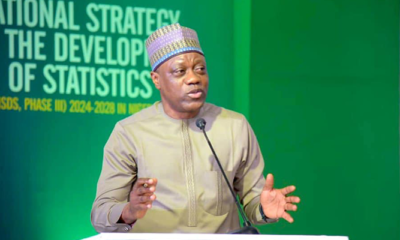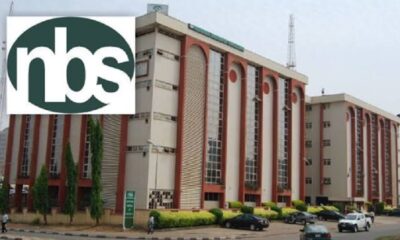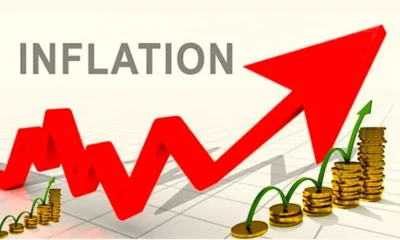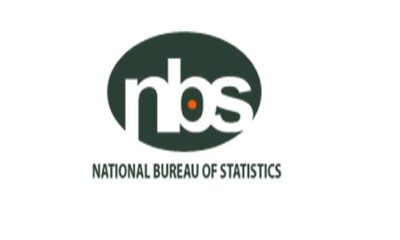The Nation
Over 65% Nigerian households uses firewood to cook, NBS reports
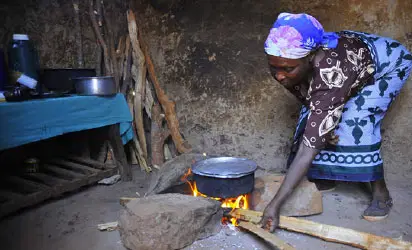
The National Bureau of Statistics (NBS) has revealed that approximately 67.8% of households in Nigeria rely on fuelwood for various purposes, including domestic, agricultural, commercial, cultural, and religious activities.
This finding is part of the Nigeria Residential Energy Demand-Side Survey (NREDSS) 2024, which was presented on Wednesday in Abuja.
The survey encompassed several states selected from the six geopolitical zones of the country, including Akwa Ibom, Bauchi, Ekiti, Oyo, Enugu, Kwara, Plateau, Kano, and Sokoto. According to the report, around 41% of households purchase fuelwood, while 39% gather or cut it themselves. This data highlights the significant role of fuelwood in the energy landscape of Nigeria, emphasizing the need for sustainable energy solutions.
“While 18.9 per cent of households used other means such as barter, gift, borrowing, etc.
“More than half of the fuelwood cut/collected by households, 55.3 per cent were branches, stems, and trees.”
It said that one in every five households, which accounted for 22 per cent used charcoal during the reference period.
The report said among households using charcoal, 21.6 per cent purchased the product, and only 0.3 and 0.6 per cent acquired it through their own production and other means, respectively.
The NBS said that 19.4 per cent of households reported using Liquefied Petroleum Gas (LPG) during the reference period.
“This means that about one in every five households uses LPG.
“The average monthly expenditure on LPG stood at N10,239.7 across the surveyed states.”
The report showed that over 58 per cent of households are connected to the national grid across the nine states surveyed, and 86.6 per cent had electricity supply during the reference period.
It said out of the total households connected to the national grid, 85.2 per cent used an estimated billing system, while 14.8 per cent reported using a pre-paid billing system.
The report said in addition, the average monthly expenditure of households on electricity was estimated at N4,155.8 during the reference period.
The NBS said from the report it is recommended that following the wide use of fuelwood, the government should promote the re-planting of trees and the use of clean energy such as LPG, wind, solar, etc.
“This will help to reduce environmental problems such as air pollution, water pollution, climate change, thermal pollution, and solid waste disposal.
The report also recommended that the government should encourage the establishment of more LPG stations and local production of gas cylinders and other accessories with added value.
“This will help to lower the end-user’s cost and optimise electricity generation by decentralising the national grid through mini-grids.”
The NBS said the objectives of the survey were to assess household energy consumption, evaluate access to electricity, analyse residential appliances and usage, and provide valuable insights for policymakers, industry players, and the government.
It said in the surveyed states, 900 households from each state were interviewed, making a total of 8,100 households across urban and rural areas. (NAN)


